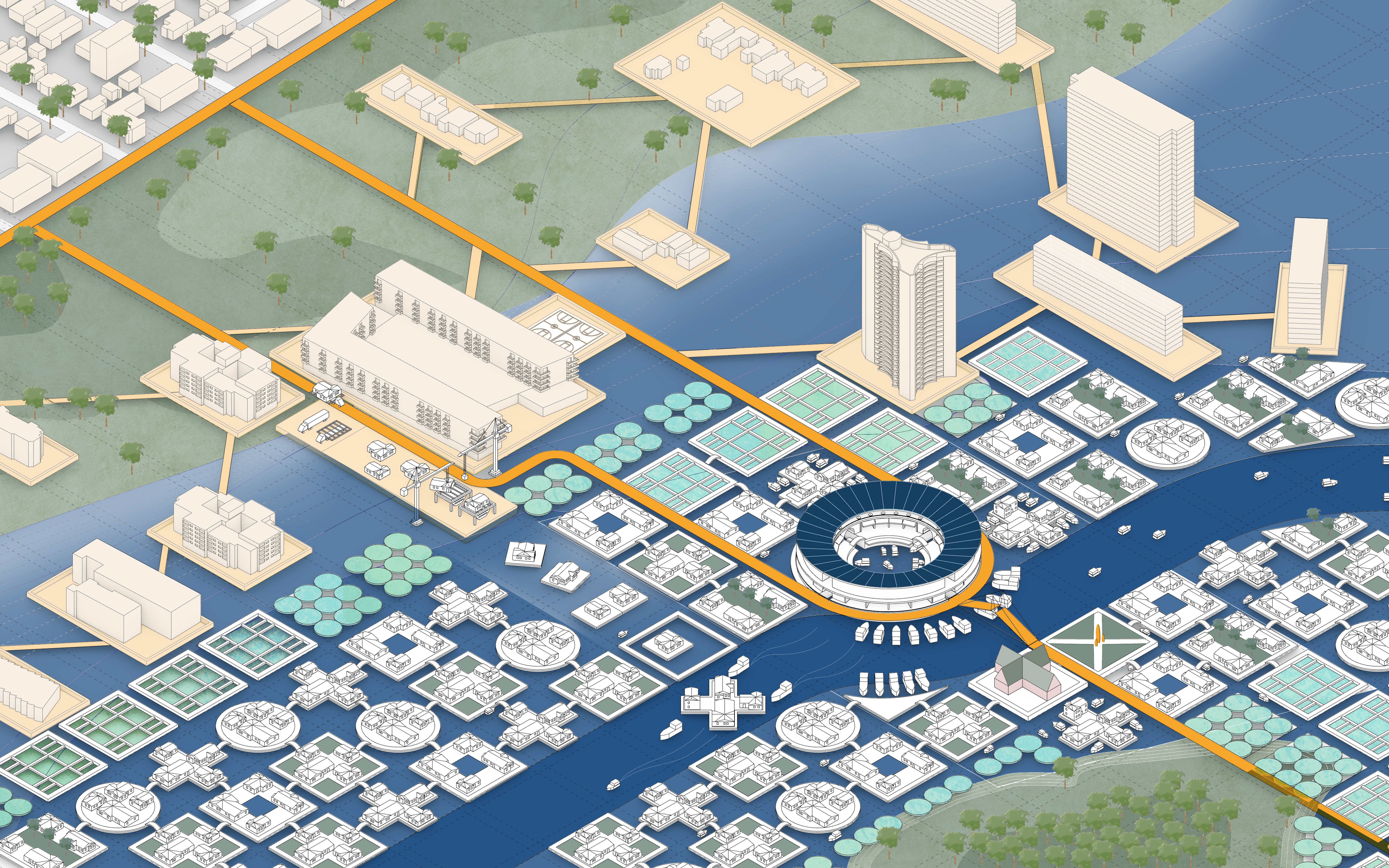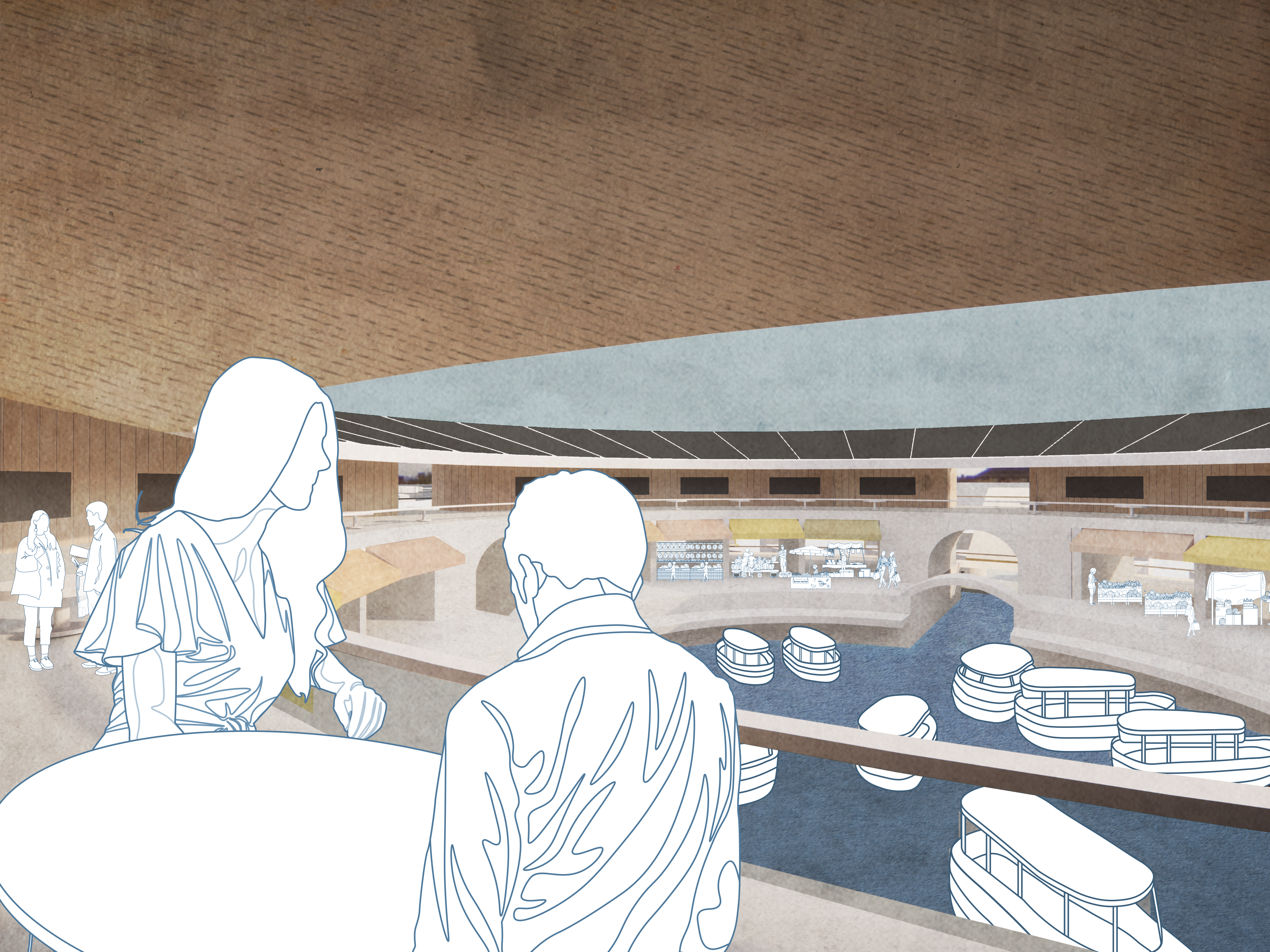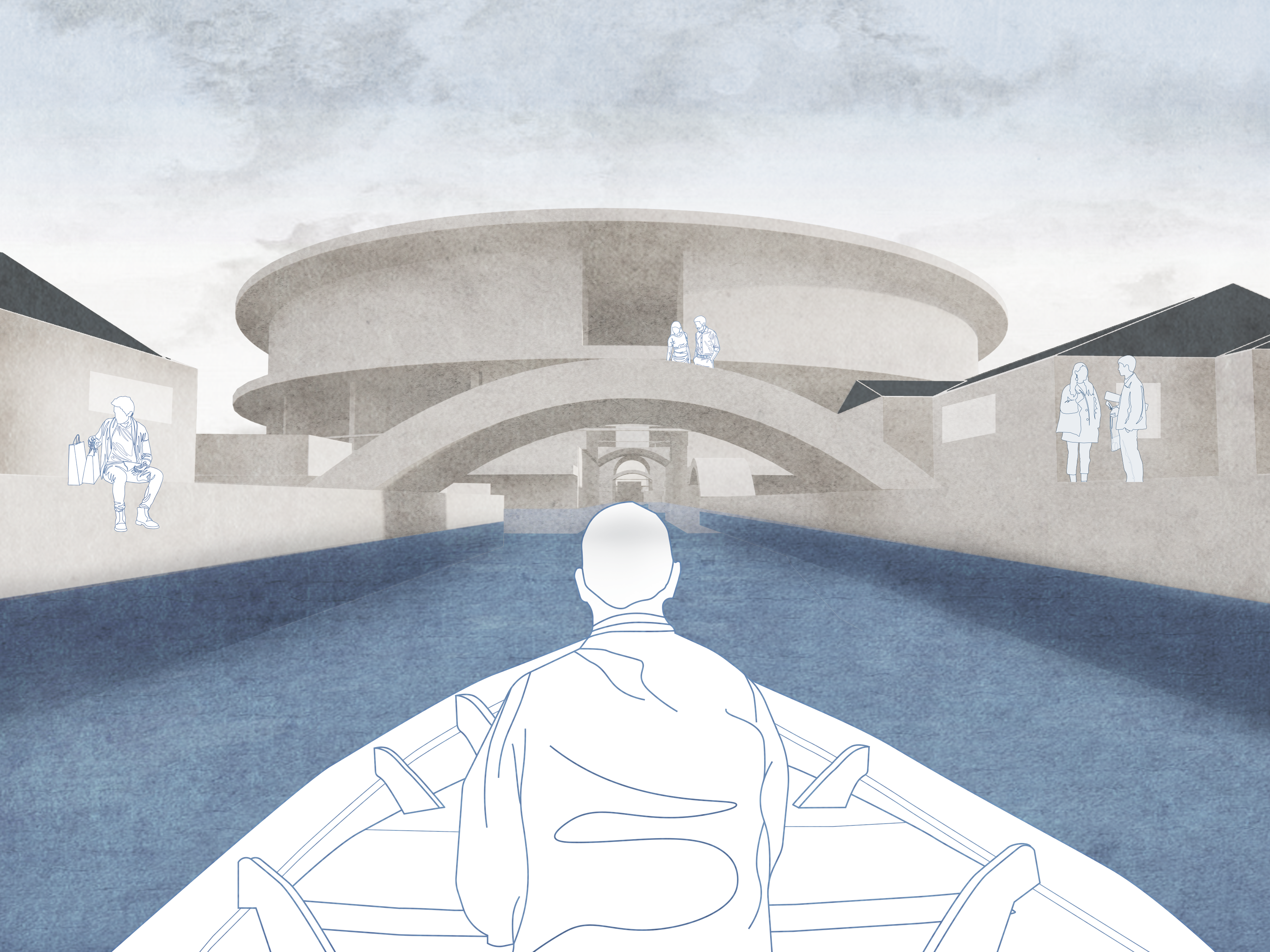‘Sea Level Rise’ Series

- Channel as Economic Generator
- From Land to Sea
- We’re all in the same boat!
Channel as Economic Generator--Resilient Waterfront Strategy in Urban Cores in Transition
Elements of Urban Design, Harvard Graduate School of Design.
2019 Fal
Cooperate with Aeshna Prasad
Instructor: Julia Watson
The design exercise focuses on South Boston, an urban core in transition located on the southern edge of the historic downtown. During the past decade, the area’s many underutilized tracts of land and elements of industrial infrastructure have been intensely redeveloped into one of the higher income neighborhoods in Boston. This redevelopment is anchored by luxury apartments and tech offices.
While the research will encompass the broader area of South Boston and beyond, we make design proposals for the assigned site: an underutilized industrial area adjacent to the waterfront, a working container port, and a historic neighborhood. Given the housing crisis in the Boston area, we explore a program with housing as the backbone for a broader urban strategy, i.e., a mixed-use development consisting of housing and additional complementary functions, as well as public spaces.
According to the sea level rising coastlines of 2025, 2050, and 2075, we can find that the land is gradually submerged, and the coastline is becoming more and more tortuous. From this we think that we can respect the laws of nature and return part of the land to the ocean, while at the same time we can also take advantage of the gradual "growth" of the coastline and the rich material resources of the channel, so that the "Channel as Economics Generator". Also, we can make use of the tortuous coastline shaped by sea level rise and marine resources to stimulate the development of local industries, thus create a thickened waterfront space. So that the site changes elastically over time and adjusts itself continuously to achieve a resilient and dynamic balance.



From Land to Sea
2022 Fall
Group Work with Gabriel Kaprielian, Camille Thai
From Land to Sea reframes the challenges of climate change as an opportunity to develop a resilient floating community that promotes social equity, environmental justice, and nature-based solutions. The residents of the Little Haiti neighborhoods face a number of economic and environmental challenges, with low geographical mobility (15%), high poverty level (36%), and lack of homeownership (84%). As the community faces the threat of flooding from sea-level rise and increasingly severe storms the value of homes will continue to decline as flood insurance increases in price or becomes unattainable.
A win-win solution is to create a property transfer program that allows the owners to be compensated and the renters to be given the deed to the house when it is moved to the floating community. The land will be put in a trust where it will be returned to a tidal wetland as sea-levels rise. The house will be moved from the property and placed on top of a floating platform and retrofitted with a self-sufficient system of waste, water, and energy. The home will become part of the floating community in a series of block typologies. This solution promotes sustainable reuse of buildings, creating home equity, and maintaining community.






We’re all in the same boat!
2017 Summer
Group Work with Lisa Wennstam, John Aghaei
This business oriented board game was designed to be as realistic as possible. Stakeholders in the real world have different goals.